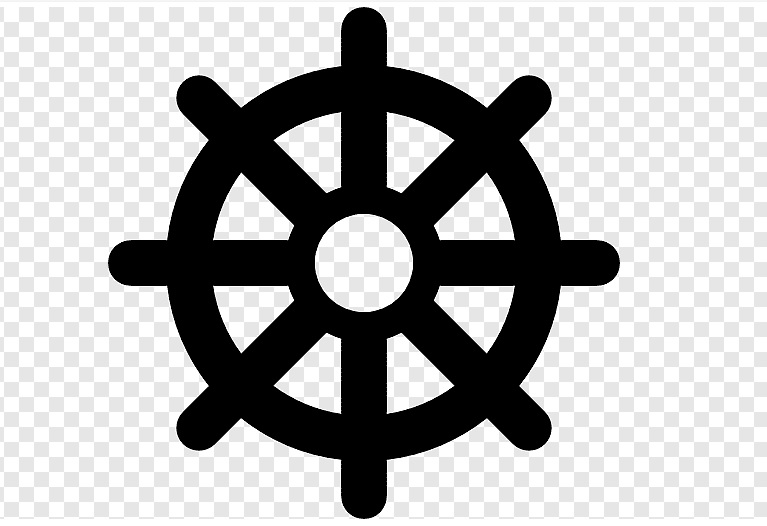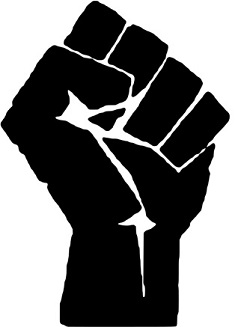
Enhancing Mechanised Farming in Uganda
February 7, 2022
Music – an explosive expression of humanity.
February 8, 2022Ubantu & Dharma
Dr Ram Vaidya
If we ask one question to all humanity as ‘what is the goal of life and expect a single common answer then probably we will get one word reply as ‘Happiness’. A typical little girl in our household gets happy with pink barbie dolls, while a boy on the other side is happy with a bunch of cars. A common person is happy with plenty of possessions while some may be happy with living on less. Few enthusiasts are happy with sweating in tracking, some may choose to remain on the sofa in leisure. This is a story for us all. We choose varied activities, quite a time contrary, but one thing is common: we get happiness as a result. Rather all look around for the sake of happiness. When a goal is accomplished and happiness is experienced we go for another one. Constant pursuit for happiness and consistent efforts towards happiness is the story of Human ‘Race’. In spite of all the pursuits, we are happy all the time.
Kabir, A great spiritual poet once mentioned that whole night I was preparing for bed. So I couldn't get the time to sleep. We may know the story by Tolstoy in which a poor man was given a chance by the King to run to one direction and that land will belong to him. He ran with greed for more and more land but died on the way and ultimately he was buried in 6ft land. So, the more we strive for happiness, the more dissatisfaction we experience. This is the truth of life. However these are individual experiences. Individual urges of happiness may turn into exploitation, depression, envy, hate and in extreme cases into in-fight or war. If we share happiness with others, the outcome is different. When we expand our happiness to wider surroundings we are filled with fulfilment. When we think of family, society, animals, nature and so on, happiness transpires manyfold, large and long lasting.
In Africa (mostly in the southern part) we come across a term called Ubantu. It begins with the premise that I am because we are. A concept in which your sense of self is shaped by your relationships with other people. Ubuntu is rooted in what I call a relational form of personhood, basically meaning that you are because of the others. In other words, as a human being ‘you, your humanity, your personhood’ you are fostered in relation to other people.African happiness is thus, not totally immersed in possessions or their accumulation. Most Ubuntu scholars are consistent in African worldview: In the recognition and attitude to life that places much more value in non-material goods and particularly on the humanity of every person. For example, Mr Shepherd Shonhiwa says in his book ‘Effective cross cultural manager: “African life emphasizes humanity and relationships over material wealth,”
Mr Lovemore Mbigi states in his book The Spirit of African Transformation Management, “The hallmark of Afrocentric philosophy is about being a good community member. It is also about living and enjoying life rather than the acquisition of the material creature comforts.” In 2018, while speaking in Johannesburg, South Africa, Mr Obama (ex president of USA)revered Ubantu as, “There is a word in South Africa — Ubuntu — that describes his greatest gift: his recognition that we are all bound together in ways that can be invisible to the eye; that there is a oneness to humanity; that we achieve ourselves by sharing ourselves with others, and caring for those around us,” Ubuntu belongs to all who honour it, and it can not be attributed to one individual author, one community or one country.
Here is the concept of Dharma in Indian civilization which coexists with Ubantu. Dharma is defined as a principle to Uphold, Sustain (Dharanaat Dharma Iti Aahuh). When we feel happy in sustaining another entity is called Dharma. Our actions when uphold every substance, matter, species, religion or thought, termed as Dharma.When my actions sustain my family then it is Dharma. My duty towards my society is dharma. Fulfilment of it is my Dharma and void of it is Adharma. I cut trees to create my home and can be considered as Adharma if I do not contribute to replanting trees for the sustenance of the environment. So, Sustainability of languages, religions, relations etc is the goal of Dharma. The most ancient Literature Rigved mentions as, ‘Let each one protect entire humanity’ (Pumaan Pumaansam Pari paatu Vishwatah), On a similar line, “Umuntu Ngumuntu Ngabantu” or “I am, because you are” is how we describe the meaning of Ubuntu. It speaks to the fact that we are all connected and that one can only grow and progress through the growth and progression of others.
Thus, Ubantu or Dharma expands the span of happiness. Mother is happy when she feeds the child. Teachers get elevated by students achieving higher accord. Soldiers feel happiness while protecting the border of the country. Ubantu or Dharma connects humans with Nature. We recognise the flowing of the river is her Dharma, as she connects all those who live by her bed. It is called Prakriti Dharma (Dharma of nature). When I build a house for me then it is home, but when I create a facility for others to stay it is called Dharma-shala. Equivalently, the Government secures its subjects by protecting and nurturing each other is the Raaj Dharma (Dharma of ruler). It is very profound to realise that two different continents develop a similar philosophy for betterment of humanity. These two concepts highlight the need for common ground regarding the essentials of human nature for any possible moral discourse within the whole idea of the common good, human dignity, and the respect of human rights. Everyone has a right to live, possess, create and perform.
Violation or obstruction to those can cause unnecessary harm. Hurting others can damage anyone’s life, so Non violence is Dharma. Non stealing is Dharma. Adhering civic rules is the Dharma. Such ethical thoughts or actions protect our circumference. To have an ethical life ten fold ethical rules are suggested as part of Dharma as patience, Forgiveness, Self control, Non- stealing, Sanctity, control of senses, reasoning, Learning, Truthfulness and Non-anger. Dharma not only connects with mundane world but with metaphysical world. Though we live in physical world, we are not satisfied with the world which we see with naked eye. We want to know the secrets of this astounding creation. What is beyond the visible? Is there any builder of this universe? Who does operate it? What happens after death of creation? These questions connect us with something beyond our reach. We then start recognising it as God, Ishwar Devata, Brahma, etc. We try to connect with It’s omnipotence and Omnipresence. That connection is translated into various religions, sects. So any religion or connection with Omnipotent energy is also a Dharma.
Mr John Samuel Mbiti (considered as a father of African theology) wrote in his book African religions and Philosophy, “African religion is not primarily for the individual, but for the community of which he is part. Chapters of African religions are written everywhere in the life of the community, and in African society there are no irreligious people. To be human is to belong to the whole community, and participate in the beliefs, ceremonies, rituals, and festivals of that community. A person cannot detach himself from the religion of his people, for to do so is to be severed from his roots, his foundation, his context of security, his kinships and the entire group of those who make him aware of his own existence. To be without one of these corporate elements of life is to be out of the whole picture. Therefore, to be without religion amounts to a self-excommunication from the entire life of society, and African peoples do not know how to exist without religion.”
Today world is facing severe man-made challenges, like Global terrorism, Global warming, economic inequality, family breakdowns etc . Ubantu or Dharma gives a solution to all above challenges of the universe. Veda (collection of ancient wisdom) has given some remarkable notions to us.Truth is one wise expressed in various ways (ekam sat vipraah bahudha vadanti ) and Let noble thoughts come from all sides. (aa no bhadrah kratavo yantu vishwatah ) Mr Mbigi gave a collective fingers theory (chara chimwe hachit swanyi inda) – Survival, Solidarity, Compassion, Respect and Dignity. All five fingers work together to achieve greater things. It is said that Dharma protects those who reciprocate (Dharmo Rakshati Rakshitah). Today as a humanity it is our responsibility to protect Ubantu or Dharma. Let us all understand Ubantu or Dharma in all aspects of life. Let Ubantu or Dharma be a part of our lives.
Dr Ram Vaidya




